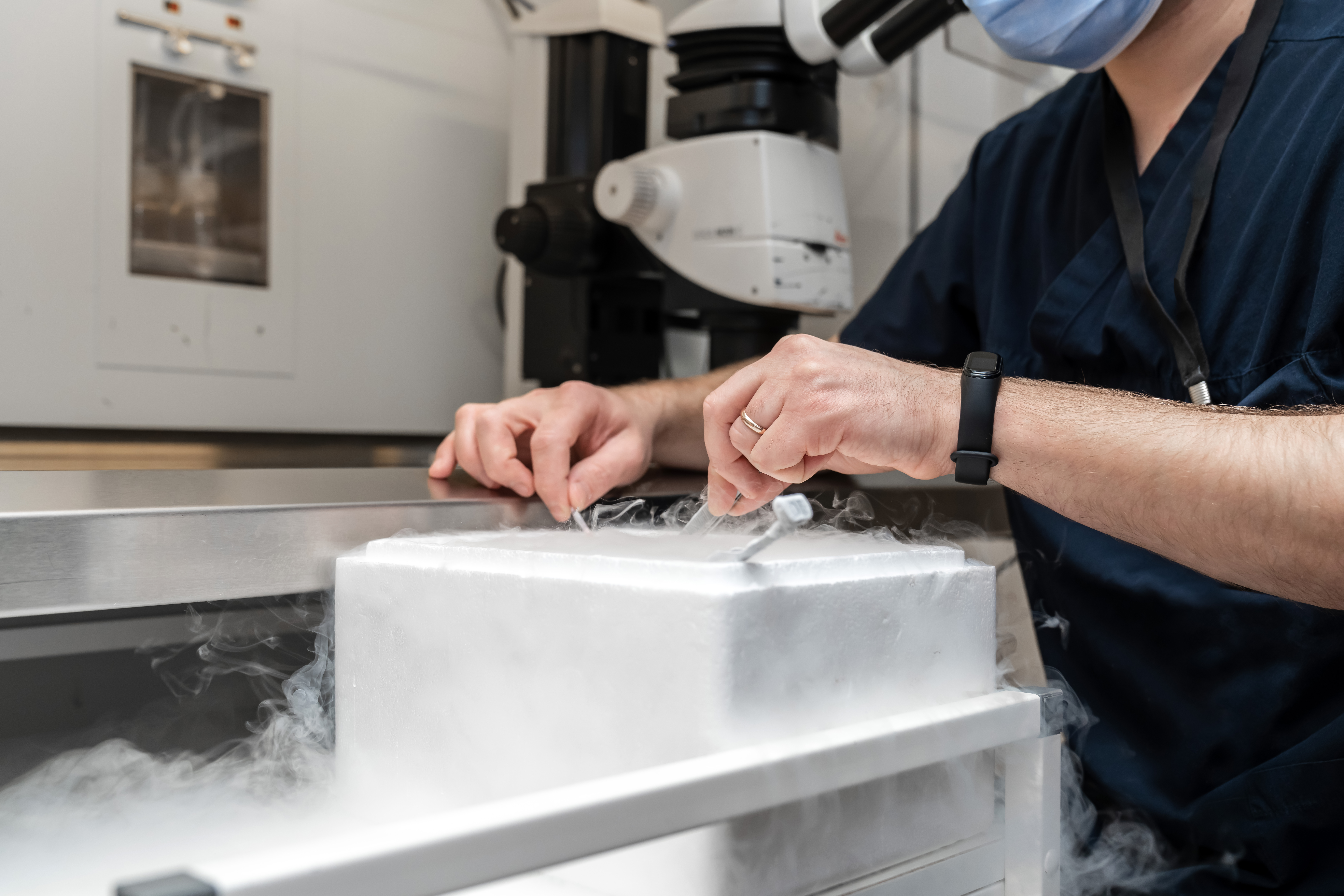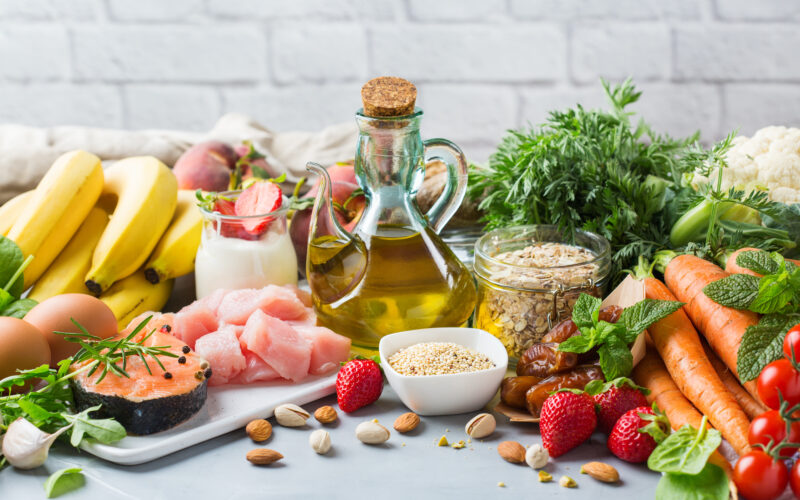The standard treatment for hormonal dysfunctions and disorders like polycystic ovary syndrome (PCOS) and endometriosis is typically the birth control pill or other hormonal contraceptives. But, as we understand more about how hormonal contraceptives work, their side effects, and the negative ways they suppress and change our cycle, more women (and healthcare providers) are looking for alternative treatments. One such alternative is making specific anti-inflammatory dietary changes for better hormone balance.
The NaProTechnology-trained OB/GYN who diagnosed my PCOS and endometriosis recommended, among other elements of a holistic treatment approach, an anti-inflammatory diet of no gluten, no dairy, and no processed sugar. While I put off trying this particular recommendation for a little while, I ended up trying it, and it made a huge impact on how I felt.
(Note: NaProTechnology is a form of Restorative Reproductive Medicine that uses information based on your fertility cycle to help diagnose and treat reproductive health conditions and hormone imbalances. It works together with fertility awareness methods (FAM) which can be used as methods of effective family planning as well as methods of health management.)
What is inflammation, and what does it have to do with PCOS, endometriosis, and hormone balance?
Inflammation, in and of itself, is not a bad thing. In fact, it’s protective; inflammation is our body’s natural response to injury or illness. However, sometimes, inflammation occurs chronically, in response to other triggers, and can cause problems.
“When inflammation occurs, the immune system in the body then responds to the inflammation in ways that cause the dysregulation and associated symptoms like period problems in PCOS or inappropriate tissue growth in endometriosis,” says Victoria Coglianese, RD, a functional medicine dietitian and owner of Wonderfully Made Nutrition.
According to the Mayo Clinic, women with PCOS “have a type of low-grade inflammation,” which is at least part of the cause of our hormonal irregularities. It makes sense, then, that a diet to decrease inflammation might help manage one’s PCOS symptoms.
Endometriosis, according to the Endometriosis Foundation of America, “is often characterized as a disease of inflammation.” Unfortunately, diet cannot get rid of endometriosis; surgery is required for that. After my own surgery to remove endometrial lesions, my doctor said that an anti-inflammatory diet should help prevent, or at least mitigate, a recurrence of the disease.
The 3 most common inflammatory triggers lurking in your diet
Gluten, the protein in dairy known as A1 casein, and refined sugar are “three possible inflammatory triggers,” says Coglianese, noting that our susceptibility to these ingredients varies depending on our genetics, environment, and health (and in particular, our gut health).
1. Refined sugar
Refined sugar, which is sugar that’s “stripped from plant sources and therefore devoid of the context of the plant nutrients,” can be inflammatory “when consumed frequently,” Coglianese says (and how many of us don’t consume refined sugar frequently?). For women with PCOS, then, sugar may be a double-whammy, as most of us also have problems with insulin resistance and blood sugar regulation. The insulin resistance that accompanies between 30-76% of PCOS cases also causes imbalances of the key reproductive hormones, including estrogen, testosterone, LH, FSH, and GnRH.
2. Gluten
Gluten (found in wheat, barley, and rye) “can trigger an immune attack against the body’s own cells,” says Coglianese, “a process called autoimmunity, causing leaky gut and triggering a further immune cascade in other areas of the body.” Interestingly, while gluten isn’t bad for everyone, it does cause an inflammatory response in other illnesses, such as Celiac disease (an autoimmune disease that causes inflammation in the intestines in response to gluten). One study showed that a gluten-free diet could be effective at reducing endometriosis-related pain.
3. Dairy protein
Finally, dairy protein, the A1 casein protein in particular, “can be a leaky gut and immune trigger as well,” Coglianese says. It might also increase “IGF-1 (insulin-like growth factor), . . which may be associated with acne and the excess tissue growth in endometriosis.”
While these ingredients are not harmful to everyone (especially when consumed in moderate quantities), it seems possible that avoiding them might alleviate some of the inflammation associated with PCOS and endometriosis. It’s at least worth a conversation with your health care provider, if you have one of these conditions, to see what he or she recommends. You can also seek a second opinion if you’re interested in being seen by a provider trained in NaProTechnology or other form of Restorative Reproductive Medicine.
Practical tips for adjusting to a hormone-balancing, anti-inflammatory diet
Like any lifestyle change, adapting to an anti-inflammatory diet can be difficult. For me, the really hard part wasn’t giving up cheese or even sweets; it was giving up bread and sweetened peanut butter (which is actually most popular brands of peanut butter). It took a while for me to adjust to the unsweetened peanut butter and to stop craving bread, but it happened. (Although, full disclosure, some of those cravings have come back in pregnancy!) I don’t even believe I’d enjoy sweetened peanut butter now, and it used to be my favorite food. You adapt, and so do your tastebuds.
The trick with any lifestyle change is to stick to it until you start seeing results. This can of course be difficult to do! But you’ll find that as you start feeling better, it’s a lot easier to say “no” to that bagel with cream cheese, because you can remember what it was like when you weren’t feeling as well. And there can be other payoffs, too. Case in point: my entire treatment for PCOS and endometriosis went so well that my hormones balanced and my fertility cycle regulated enough for my husband and I to conceive our daughter (due this June). Remembering this fact will be a huge motivator for continuing with my anti-inflammatory diet and other hormone-balancing recommendations my doctor makes in the future.
Here are a few other tips for adjusting to an anti-inflammatory diet that I can share from experience:
- If you’re craving something sweet, opt for fruit. I’ve been enjoying bananas or apples with peanut butter as a surprisingly sweet snack. If I want to treat myself, I’ll bake something using honey or coconut sugar as a sweetener; they’re still sugars, but they are less processed than refined sugar, and lower on the glycemic index (an important consideration for PCOS). Their impact may vary for different people, but I personally haven’t found that using them in moderation has negatively impacted the positive effects of my diet.
- Make a habit of reading nutrition labels, and of recognizing all of the different names for sugar; it’s snuck in to much more than you probably realize!
- Adjust your perspective on eating out: If you can find a restaurant or two that you enjoy on an anti-inflammatory diet, great! But if you are at a restaurant where your dinner winds up being boring, enjoy the experience of being in a restaurant with your family or friends rather than overly focusing on what’s on your plate.
- Learn to enjoy cooking! I never did enjoy cooking, but finding recipes that work on my diet and taste great can be fun, and very rewarding. You have so much more freedom to eat delicious, healthy foods when you cook your own meals than when you order takeout.
- The anti-inflammatory diet is probably not for everyone, so if you’ve been on it for a while, and you aren’t seeing any results, talk to your doctor about it. If she agrees it’s a good idea to do so, let it go, and try something else.
Hormonal conditions like PCOS and endometriosis are complicated, and there’s still a lot that doctors don’t know about them. As a result, the same is true for their treatment. But we know, broadly, that diet has a huge impact on our health—and our reproductive health and hormone balance is no different. As Coglianese says, eliminating dairy and gluten and reducing sugar to a “very limited” intake is a great place to start.
Additional Reading:
Is There a Link Between Gluten Consumption and Infertility?
3 Simple Tips to Limit Endocrine Disruptors and Balance Hormones Naturally
How Whole30 Helped Me Manage my PCOS and Overcome Infertility
Endometriosis, Miscarriage Risk, and Hope for Healing
Insulin Resistance, PCOS, and Fertility Health: Are you at risk?











